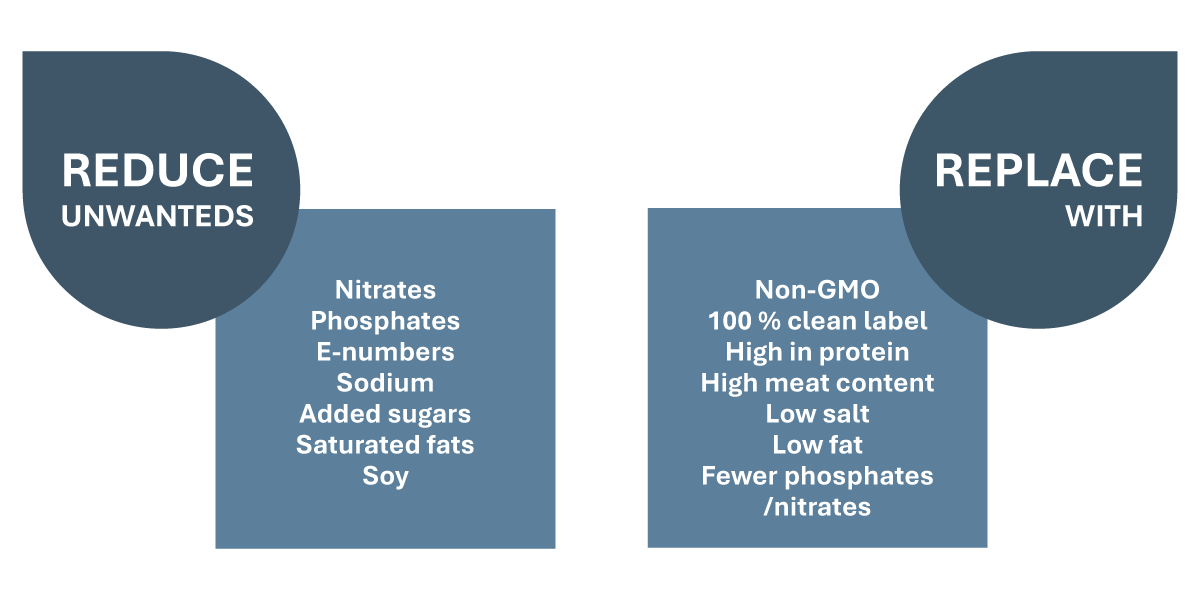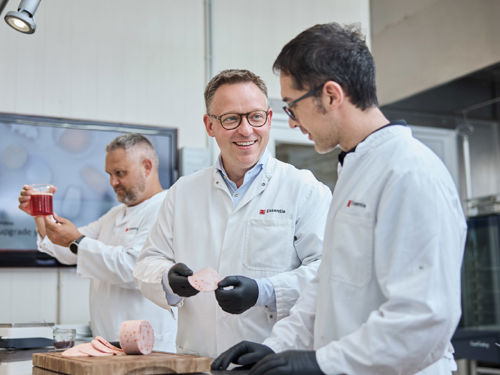The world's appetite for meat continues to grow
From studies on the impact of livestock farming, it is well known that beef production is responsible for extensive greenhouse gas emissions and requires substantial land.
It is believed that avoiding meats and dairy products is a way of reducing our environmental impact on the planet. Without meat and dairy consumption, the areas of global farmland use could be vastly reduced.
Meat is an important protein source for the ever-growing population, and many of us continue to consume it regardless, and most attribute this to habit to culture and nutritional needs.
Humans have been eating meat since the prehistoric age, consuming ever more of it as time has worn on. Over the past 50 years alone, we have quadrupled global production to roughly 350 million metric tons annually, according to the United Nations Food and Agricultural Organization (FAO).
The global consumption of meat has more than doubled since 1990, reaching over 339 million metric tons in 2021, and the United Nations Food and Agriculture Organization predicts that will rise to 374 million metric tons by 2030.
Meat for nutrition and indulgence
Despite several initiatives that focus on diverting interest away from the consumption of animal-based foods, meat products are still thriving as the main protein of choice. This is hardly surprising as the nutritional benefits of animal-based proteins are nearly impossible to find in other sources. Meats have an outstanding nutritional profile as the ideal protein source of bioavailable essential amino acids and collagen.
Additionally, most people see a well cooked and presented piece of meat as the height of indulgence. This has always led to the mass production of meat, processed meats and meat substitutes.
Soy protein is widely used in meat products because of its competitive price and functional properties. However, soy is becoming increasingly unpopular because of concerns over allergies, GMOs, and effects on the environment. Despite numerous certification schemes about responsible sourcing, soy production is a threat to the environment in several ways in many regions around the world.
Making meat a healthier option
How can processed meats stay relevant?
Consumer choices have become more dependent on ‘good for you’ claims. More shoppers are looking to buy foods that are not likely to be detrimental to their health, which is why transparency is so important. The provenance of foods and transparency about the entire supply chain is a quality that modern consumers are demanding before making a choice of what they put into their bodies.
Shoppers these days want to know; how it was made, what is in and what is not in the product, who made it, and can they be trusted? Is it locally sourced/produced? Did anything/anyone got harmed during the process of making it?
Clean label adds appeal
More consumers prefer clean label products made using as few ingredients as possible. They try to ensure that the contents are recognizable and could even belong in their own kitchen.
Reduce and replace
Cut down on adding unwanteds
Meat-based protein solutions derived from natural animal raw materials provide the functionality that paves the way for additive-free meat products. What are considered unwanted additives can be substituted with functional animal-based ingredients that will give genuine claims to the end products.
The food industry is not always able to do away with additives entirely, as their properties are difficult to replicate with any other single compound. However, replacing additives is possible and will be beneficial for consumer health and well-being overall. Innovative solutions in the form of functional meat-based proteins can be used as partial or complete substitutes for additives.
’Good for you’/ ‘Free-from’ claims are winning more with modern consumers who prefer products that have no or fewer unwanteds. Replace unwanteds with authentic ingredients by using functional solutions that elevate the appeal of meat products with modern consumers by making them more label-friendly.

Rethink your formulation
It might be time to review processed meat recipes and investigate new options and alternatives to unwanteds. This will help meat processors and manufacturers of meat-based foods to become more competitive. This can be achieved by being in tune with consumer demands as well positioning a brand as healthier and more in line with evolving trends.
Functional solutions like proteins and hydrocolloids work well for manufacturers who are looking to reformulate with 100 % natural healthier alternatives. There are many benefits to using animal-based ingredients that most regulations regard as adding real meat to meat products.
We have you covered
Essentia manufacturers a unique selection of meat, skin, bone, blood, and insect raw materials that are used to bring the best of nature directly into your formulation. To find out more about our various solutions, or to make enquiries about co-creating with our experts, kindly reach out to a representative near you.




